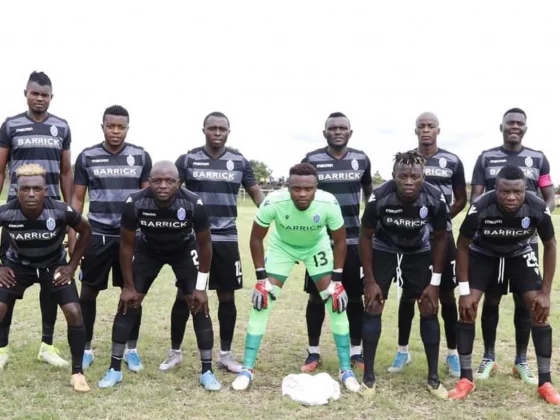…Lungu’s extraordinary life and work
SIMON MUNTEMBA writes
@SunZambian
AT his home in Lusaka’s Bauleni Compound, a 49-year-old Popela Lungu is just an ordinary and adorable parent, a father of five whose children only know he works for the country’s biggest teaching hospital.
At his workplace, the University Teaching Hospital (UTH) mortuary, he is one of the most dreaded persons, a mortuary attendant whom some people suspect finishes off dead people who attempt to stir back to life using a hammer.
But Mr Lungu says mortuary attendants are normal human beings trying to earn a living just like everyone else, and it is not true that their work is to finish off any corpse brought into the morgue that attempt to stir back to life.
He told The Sun in an exclusive interview that it was a myth that a mortuary attendant must be an alcoholic or a drug addict in order to copy with working in the dreaded and superstitious working environment.

In many African cultures, death and the dead are revered, and the sheer mention of a morgue, a place where the dead are kept before burial, sends shivers down the spine of many people.
The Sun spoke to one of the UTH’s long serving mortuary attendants, Mr Popela Lungu, and the following is his tale:
Question: Tell us about yourself Sir. What exactly is your role here at UTH mortuary?
Answer: My full names are Popela Lungu. I am 49 years old, married and blessed with five children. I live in Bauleni compound. Here at UTH, I am a mortuary attendant and I can also be called a Brought in Dead (BID) clerk.
My job entails completing the necessary paper work, that is recording the bodies brought in the book as well as labeling them properly for identification. My job also involves collecting dead bodies from the wards, recording their arrival at the mortuary and preserving them to slow or stop tissue decomposition by ensuring that the bodies are properly stored in the refrigerator. I also assist the pathologist during post-mortems.
Question: What does it take to work as a mortuary attendant?
Answer: It is like any other job. Actually there is no particular qualification required for an ordinary mortuary attendant. Basically, one is just expected to know how to handle corpses and must be physically fit.
Question: Are you not afraid working and being around the dead?
Answer: Hahahaha! No, I am not. I have never been afraid of being around the dead. I don’t know why people fear corpses. After all, dead bodies can’t harm or annoy you as the living can.
Yes, when I was new in this job I had fears and challenges handling the dead, but I no longer fear. I, in fact enjoy every bit of my work. Working with the dead gives me satisfaction to help honour the departed and give them their last respects.
Question: How long have you been working as a mortuary attendant and how do your neighbours, relatives and friends relate with you?
Answer: Being a mortuary attendant is a job that most people abhor despite the joblessness that engulfs the country but I have been working in a mortuary for about 19 years now. As mortuary attendants, we are stigmatized and even when walking on the streets, many people don’t want to associate with us and some are even heard saying, ‘that is the mortuary guy’.
I was actually employed in 2000. I will be frank with you, my children just know that I work at UTH. Of course my wife and other family members were at first not comfortable with my choice of job but later came to accept and support me because when there is a funeral in the family, they all depend on me to do all things.
Question: It is believed that a mortuary attendant must be an alcoholic or a drug addict, and it is also believed people who are brought in the mortuary and later found not to be dead are killed by the mortuary attendants. What do you say about that?
Answer: Those are just myths. It is totally false. What you should understand is that mortuary attendants are also human beings with feeling and besides the bodies are normally confirmed and certified dead through a number of tests carried out just to be sure that indeed they are dead. I have never witnessed anyone waking up from the dead in the mortuary ever since I have been here for the past 19 years. When a body is brought to the mortuary, it’s refrigerated after three hours and this is just in case the person is found to be alive which has never occurred.
Also it is not true that a mortuary attendant must be an alcoholic or a drug addict to be able to copy up with the working environment. Most of our staff here don’t even drink alcohol.
Question: What are some the challenges you are faced with as a mortuary attendant?
Answer: Discrimination is just one of the several challenges we face for being mortuary attendants. The other challenge we face is when we receive bodies that have gone very bad or unknown bodies that are difficult to identify before the postmortem is done, which could be due to being disfigured in an accident or fire, for example.
Question: Your last words or advise to the people out there Mr Lungu?
Answer: Members of the public should be sensitised about careers such as this one because young people are shying away from these kind of careers because of misconceptions and very soon, such careers will not have the necessary manpower to run them and yet they are careers like any other and are important to the society.
Imagine a world without mortuaries, or mortuaries without the people who are working in there, who will take care of our beloved deceased ones? There is need to educate and sensitize the public about working in the mortuary, a career which is grossly misunderstood.





















